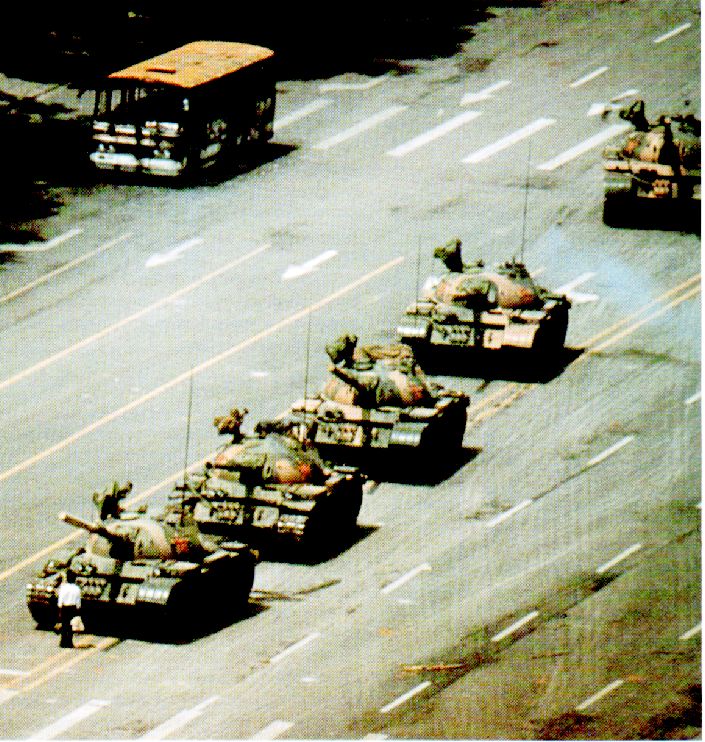Chinese Editor Dies After Beating by the Police
By JOSEPH KAHN
Published: February 8, 2006
BEIJING, Feb. 7 — A Chinese newspaper editor who was severely beaten by the police after he published an article that alleged petty abuses of power in their ranks died of the wounds he suffered in the attack, a New York-based media watchdog group said Tuesday.
The editor, Wu Xianghu, 41, died of liver and kidney failure last week after he failed to recover from the Oct. 20 beating in his office in the eastern coastal city of Taizhou, the Committee to Protect Journalists said in a statement.
The city government of Taizhou said the cause of Mr. Wu's death was still being determined. State news media reported earlier that a beating had occurred, but officials subsequently banned coverage of the matter and have not publicly acknowledged the death.
In October, The Taizhou Evening News published a report that criticized high license fees the traffic police imposed on electric bicycles, which are popular in the area. The report suggested that the fees violated local regulations.
The next day, a large group of traffic policemen stormed the offices of The Taizhou Evening News and beat Mr. Wu in plain sight, colleagues said at the time.
One senior traffic police officer, Li Xiaoguo, was fired for his role in the incident, the state-run New China News Agency said at the time, but there was no indication that other officers had been fired or that any faced criminal prosecution.
"The death of our colleague after he was brutally assaulted for his work is a cruel reminder of the new dangers faced by Chinese journalists," Ann Cooper, the executive director of the Committee to Protect Journalists, said in a statement. "The government must ensure the safety of the working press. This begins by bringing to justice the attackers of Wu Xianghu."
Chinese media operate under strict controls and do not routinely criticize the police or other authorities. But in an increasingly competitive economy, some newspapers and television news programs have pursued bolder investigations to attract readers and viewers.
Beyond the risk of offending censors, journalists who expose official corruption often face harassment and intimidation, and in some cases have been prosecuted and sentenced to long jail terms.
By JOSEPH KAHN
Published: February 8, 2006
BEIJING, Feb. 7 — A Chinese newspaper editor who was severely beaten by the police after he published an article that alleged petty abuses of power in their ranks died of the wounds he suffered in the attack, a New York-based media watchdog group said Tuesday.
The editor, Wu Xianghu, 41, died of liver and kidney failure last week after he failed to recover from the Oct. 20 beating in his office in the eastern coastal city of Taizhou, the Committee to Protect Journalists said in a statement.
The city government of Taizhou said the cause of Mr. Wu's death was still being determined. State news media reported earlier that a beating had occurred, but officials subsequently banned coverage of the matter and have not publicly acknowledged the death.
In October, The Taizhou Evening News published a report that criticized high license fees the traffic police imposed on electric bicycles, which are popular in the area. The report suggested that the fees violated local regulations.
The next day, a large group of traffic policemen stormed the offices of The Taizhou Evening News and beat Mr. Wu in plain sight, colleagues said at the time.
One senior traffic police officer, Li Xiaoguo, was fired for his role in the incident, the state-run New China News Agency said at the time, but there was no indication that other officers had been fired or that any faced criminal prosecution.
"The death of our colleague after he was brutally assaulted for his work is a cruel reminder of the new dangers faced by Chinese journalists," Ann Cooper, the executive director of the Committee to Protect Journalists, said in a statement. "The government must ensure the safety of the working press. This begins by bringing to justice the attackers of Wu Xianghu."
Chinese media operate under strict controls and do not routinely criticize the police or other authorities. But in an increasingly competitive economy, some newspapers and television news programs have pursued bolder investigations to attract readers and viewers.
Beyond the risk of offending censors, journalists who expose official corruption often face harassment and intimidation, and in some cases have been prosecuted and sentenced to long jail terms.
Curious to see what will come of this. If enough people get angry about it, the government may take further action against the traffic cops responsible. This could also help lead to further liberalizing of the media. However, if its allowed to be swept under the rug, it might lead to further repression when fewer newspapers are willing to take the risk of such investigations.




 Now you're really reaching for a threadjack. Shame that you're useless in debate.
Now you're really reaching for a threadjack. Shame that you're useless in debate.

Comment